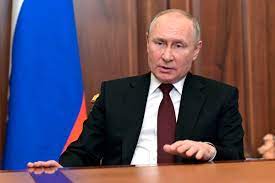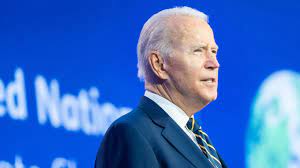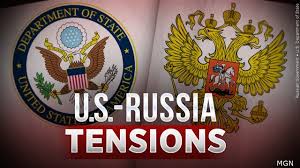United States Announces Initial Sanctions in Response to Russia’s Invasion of Two Ukraine Regions

In response to Russia’s invasion of Ukraine territories, the so-called Donetsk and Luhansk People’s Republics, respectively, (hereinafter “DNR” and “LNR”), yesterday, on February 21, 2022, President Biden issued a new Executive Order targeting the DNR and LNR regions of Ukraine with comprehensive sanctions.[1] In practical effect, the new sanctions impose an embargo similar to that imposed against the Region of Crimea after Russia annexed the region in 2014.
The White House issued a fact sheet to emphasize that the U.S. government was prepared to issue “swift and severe economic measures” in response to a further Russian invasion of Ukraine. OFAC also issued six general licenses which include: (i) GL 17 – a 30-day wind down period for organizations to discontinue operations in the DNR and LNR; (ii) GL 18 – authorizes export of agricultural commodities, medicine and medical devices; (iii) GL 19 – authorizes telecommunications and mail; (iv) GL 20 – authorizing activities by certain international organizations; (v) GL 21 – authorizes non-commercial personal remittances and associated accounts; (vi) GL 22 – authorizes export of certain services and software incident to internet-based communications.[2]
The new Executive Order sets the stage for implementation of comprehensive sanctions in other areas in the Ukraine

In addition to the U.S. sanctions, the United Kingdom has swiftly implemented additional sanctions of its own. These sanctions target several individuals and entities with close ties to the Kremlin, including three individuals: Gennadiy Nikolayevich Timchenko, Boris Romanovich Rotenberg, Igor Arkadyevich Rotenberg, along with five Russian financial institutions: Bank Rossiya, IS Bank, Joint Stock Company GenBank, Public Joint Stock Company Promsvyazbank, and the Black Sea Bank for Development and Reconstruction. Other than Promsvyazbank, these entities were already designated on OFAC’s SDN List
Germany also announced that it has frozen the Nord Stream 2 pipeline project, indicating that it would also pursue an aggressive response. As one academic stated, “[i]t suggests that Germany is actually serious about imposing tough costs on Russia.”[3]
These new sanctions are very likely only the start of further prohibitions to be implemented in the near future. The White House has already indicated it will implement further sanctions. The European Union has indicated similar intentions.

In the event that the United States and Europe decide to implement comprehensive sanctions in response to Russia’s actions in the Ukraine, the scope of such sanctions could include a variety of steps targeting Russia’s leadership, oil and gas industry and financial institutions. While it is not clear exactly what form a new sanctions program would take, media reports have highlighted the following actions:
(1) Comprehensive blocking and freezing of assets linked to President Putin and other political leaders. President Biden recently suggested that the United States and Europe would impose significant “personal sanctions” against President Putin and other leaders which would have cause President Putin to lost access and control of a vase network of assets and wealth;
(2) Specific sanctions blocking Russia’s oil and gas business, including Rosneft and Gazprom, Russia’s two largest oil and gas companies. This option would include designation of Rosneft and Gazprom as SDNs and have a significant impact on the global energy markets, including crude oi, gasoline and other products.;
(3) Prohibition or restriction of Russia financial transactions in the global SWIFT payment system, which would have a significant impact on Russia’s ability to conduct business globally. Denying Russia access to the international SWIFT system would have a major impact on Russia’s access to the global economy. For years, Russia and China have promoted an alternative to the SWIFT system as a way to prevent severe sanctions from Western governments. These efforts are ongoing and denial of access to the SWIFT system would be a major step for the United States and Europe to take in response to Ukraine aggression; and

(4) Ban exports to Russia of various microelectronics products that include U.S. equipment, software or technology with a focus on artificial intelligence, quantum computing, and aerospace.
In addition to actions taken by the Biden Administration, Congress may react to any Ukraine invasion by passing legislation imposing a range of sanctions against Russia. The range of alternatives include those listed above. Congress intends to increase assistance to the Ukraine military and to nearby allies which support Ukraine’s resistance.
In recent days, the United States government has appeared to revise its approach to an aggressive sanctions initiative. It appears that the United States and the EU are building a unified approach that is fully support by European allies. To this end, it has been reported that the United States has backed away from an aggressive approach sanctioning Russia’s oil and gas interests and blocking Russia’s access to the SWIFT global financial payment system. Instead, the United States approach appears focused on sanctioning Russian state-owned financial institutions, including VTB Group Bank, Sperbank, and Gazprom Bank, and denial of Russian access to exports involving sensitive electronic technologies and products.
[1] The Ukraine-Russia sanctions program implemented by began on March 6, 2014, pursuant to Executive Order 13660. This initial Executive Order was expanded in subsequent Executive Orders 13661, 13662 and 13865 in 2014. Pursuant to these Executive Orders, OFAC designated additional individuals as Specially Designated Nationals, issued a comprehensive Sectoral Sanctions Identification List, consisting of four specific directives, which restricted various activities of designated entities, and adopted a comprehensive embargo applicable to the Crimea region.
[2] General License No. 17 authorizes a 30-day wind down period. See https://home.treasury.gov/system/ files/126/ukraine_gl17.pdf.
[3] See https://www.reuters.com/business/energy/germanys-scholz-halts-nord-stream-2-certification-2022-02-22/.















